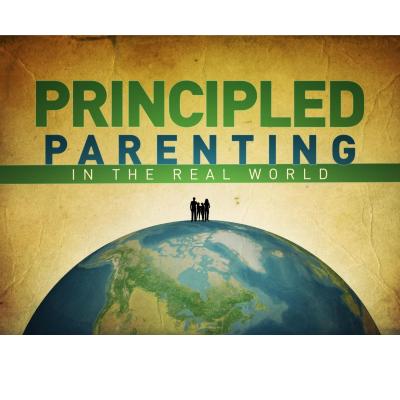SERMON SUMMARY
If you want to pass down to your children a genuine, life-changing Biblical faith, if you want them to grow in Christ-likeness, then you must build engaged, loving relationships with them. With each day comes the opportunity to build loving, emotional bonds with your children that will increase the likelihood that your values will be transferred to them unchallenged. Children embrace their parent’s faith and values much more readily when they have a strong, loving relationship with them. I try to think of it like this. I am trying to build windows into my children’s souls through which godly influence can pass. And so, to me, every interaction with my kids is important. It is either opening windows or building walls. I want to have the kind of loving and engaged relationship that will open windows so that my values will transfer to them unchallenged, or at least unopposed. You can challenge something without opposing it. It is ok to ask the question “Why?”
How can we build engaged, loving relationships with our children? This is critically important, because there is virtually no limit to the number of factors that will try to pull you and your children apart. Peers can drive a wedge between you, as can media influences, cultural trends, and temptations of various kinds. Again, the stronger your relationship, the greater the probability your children will embrace the faith and values you hold so dear. The Apostle Paul provides some practical parenting instruction in a letter that he wrote to the first century church of Thessalonica. It is obvious that he felt a strong parental-like responsibility towards them. In v. 7-8, he expresses the maternal side of parenting. He writes, “But we proved to be gentle among you, as a nursing mother tenderly cares for her own children. Having so fond an affection for you, we were well-pleased to impart to you not only the gospel of God but also our own lives, because you had become very dear to us.” In other words, Paul expressed gentleness, tender care, and fond affection toward the Thessalonians because they had become very dear to him. Paul did not stop with sharing the gospel with them. No, he shared his life with them. This is a divine description of how mothers should love their children. This is how you go about building an engaged, loving relationship with them. But ideally, parenting involves two engaged parents.
Paul goes on to describe the paternal or fatherly role of parenting. He says, “…just as you know how we were exhorting and encouraging and imploring each one of you as a father would his own children, so that you would walk in a manner worthy of the God who calls you into His own kingdom and glory” (1 Thessalonians 2:11-12). Dads should exhort, encourage, and implore their children to walk in a manner worthy of the God we love and serve. Both sides of parenting are necessary: the tender side and the tough side. That kind of tender and tough relational parenting is incredibly powerful when administered by parents who are walking their talk. Paul did. He practiced what he preached, and so must we, if we want our children to embrace our values. I want to go back for just a moment and examine three key words Paul used to describe a father’s role in parenting. We see them in verse 11 of 1 Thessalonians 2: “…just as you know how we were exhorting and encouraging and imploring each one of you as a father would his own children…”
The first word is “exhorting.” The picture behind the Greek word is that of a cheerleader—urging your children on, expressing confidence in them. You should be your children’s biggest cheerleader. The second word Paul uses to describe a father’s influence is the word “encouraging.” It means to console or comfort. It is the tender side of fatherhood. He uses this same word in 1 Thessalonians 5:14. Sometimes in parenting our kids need a figurative kick in the rear, but probably more often, they need an encouraging arm around their shoulders. The third word Paul uses here is a strong one. It is word “implore”. It conveys the idea of a dad drawing a line in the sand and reminding their child of the consequences for crossing that line. It’s not discipline for disciplines sake, rather it’s a statement that says, “I love you too much to tolerate that behavior.” Having those hard conversations with your children is the tough side of parenting. It is the side that says, “I love you too much to allow you to pursue a course of action that may be destructive.” But it is a critical side of parenting. To fail to have them is to fail to parent biblically. It is your responsibility to protect your children from harmful influences. At times like these, your children may not like you very much, but if you have a strong relationship with them, they will respect your decisions, and their life and yours will be better for it!
The truth is, even if you do everything right, your child may reject your values. The converse is also true. You could do nearly everything wrong and your child may grow up to be a godly man or woman.
APPLICATION / CHALLENGE
- Practice what you preach.
- Build strong relationships with your children.
- Give a well-reasoned basis for the values you are trying to impart.
- Pray without ceasing! God can do what we cannot.
TAKE ONE STEP…
Each week, write down one doable concrete step of obedience, small or large that you will put into practice this week. (James 1:22: “But prove yourselves doers of the word, and not merely hearers who delude themselves.”)


